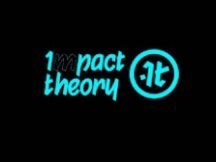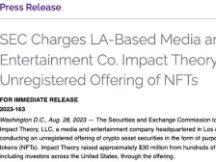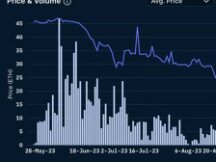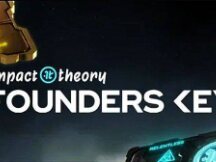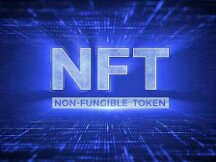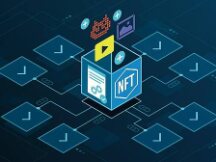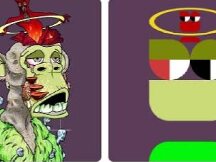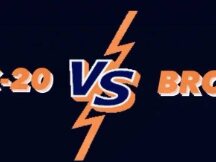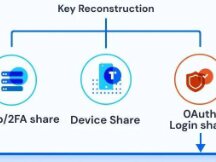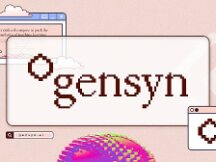Rocki, BSC's largest NFT music platform: ability to market N music channel

Last week, Chain Tea House announced Web3's largest music app, Audius "Audius Decentralized Music Streaming: Judgment for the Medium | Chain Tea Diligence". This week, we continue to explore other major issues with this line. The Rocki project.
Rocki is BSC's largest NFT music platform. The average user can listen to free music and trade NFT to listen to music, music producers can create a valuable contract that distributes the income and makes NFT to listen to music, and token holders can choose their favorite music, you can promise to vote for your constituents. and Music Everyone will receive the Promise Award from the project.
Rocki will be out in beta from September to December 2020. The $ ROCKI token will go on sale on December 20. The public beta will be released to BSC on April 21. It is still in public beta. As of December 30, 21, the Global Market Value (MC) was approximately US $ 1.7 million and the Total Diluted Value (TFR) was approximately US $ 21 million.
1. FabricationProduct Features
Currently, the product only has a web version, and its main functions are playing and downloading music, distributing and purchasing NFT music, and ripping promises.
1.1Play and download music
The "Music" page website can be understood as a simple version of the music list, works as a music app, and can be identified by singles, artists, and playlists. Users can also add songs or lyrics to "Like" and view and play them on their account. As part of the freeform plan, these songs will follow the monthly subscription plan going forward (see section 3.1 for details), with entry fees set across all platforms to pay artist royalties. , but the public beta is now free.

Musicians can upload their own music and you need to set the royalty value when uploading. The image below is the share panel agreement that you need to fill out while downloading. As royalty income increased, that income was distributed to the account to inform strategies.

1.2Tingji NFT supplies and buys
The "NFT" page of the website can be understood as a list of songs that one has to pay to listen to a song, and users can modify the NFT listening rights. The number of NFTs being limited, the musicians had to define their own numbers and prices before the release. Users can only listen to the demo before purchasing and can listen to the full text after purchasing the NFT. The cost of Paid Music (PDG!) In the image below is 0.02 BNB, a total of 10 copies printed and one sold out.

These NFTs will be sold for the second time, and the platform offers direct sales and sales (bottom left). Listening to the right to buy after the sale is not immediately legal, pending orders in the NFT marketplace are marked as “fan resale”, and pending a decision from principals, the ratings are displayed as “no one from”. liberation ”(bottom right). .

This now sells Rocki's core NFT gameplay, restricts listening rights, and remains the mainstay of Rocki's paid musicians. Other newcomers to the NFT music platforms in the market may also pack less material and Discord limiting channel quotas when selling NFT. Take advantage of the people.
In fact, in the 20-year beta phase, Rocki will sell an NFT royalty and sell 50% of future royalties to Rocki for 40 ETH on Israeli musician Guy J.'s new Cotton Eyes. This experience has brought Rocki great popularity, but So far, Rocki has yet to release the Royalty NFT as a public beta. He predicted the group was working harder because the payment model was not online and couldn't collect invoices. from Elevate Listening Permissions to NFT.
Currently, most of the NFT distributors are music players, and the price of NFT starts at 0.01 and 0.5 BNB, which is not high.
1.3read cog extraction
The "Stake" website is a mining project started on the platform in October of this year. Users can entrust as many ROCKIs as they wish to any musician. After the event ends, the platform will offer tens of thousands of ROCKI tokens in dollars. Half of the tokens are given to users and the other half to musicians. Offer a gift. Only work out once every few weeks and will continue to do so.
In the first mining operation which began in October, a total of 130 users entered the contest and 70 musicians participated in the vote, and a total of 650,000 ROCKIs (estimated at around US $ 140,000) were pledged. The contract will run for 3 weeks and users can withdraw their money at any time. After the event, the platform offered a total of ~ $ 58,000 ROCKI (approximately $ 13,000 USD) as a reward of ARY ~ 105%. Round 2 has recently started and will run for 8 weeks. At the end, a total of ROCKI $ 48,000 will be paid out, and the total amount of prizes will be less than the first round. A total of ROCKI $ 270,000 is now involved in the contract.

For regular users, any product experience is unfamiliar, for example, the music in the list can only be played in the correct order, the playing music pauses after navigating to another page, the page of The NFT purchase has a delete option. options, etc. This product offers it as a platform used to deliver smart loyalty contracts and music products to musicians.
Our bots are tired. Please try later.2. FabricationMarketing and product development
The current supply is still very low. The number one Cotton Eyes, which sold NFT royalties for 40 ETH on December 20, only received 20,000 views. Composer Guy J has only 300 Rocki fans and Guy J has all Spotify fans. It has 96,000 monthly listeners. , Soundcloud has 159,000 fans. According to CMC data, Rocki has 1,569 cashiers. This product is a very niche market in both the crypto space and the music industry.
In fact, Rocki had a pretty good market during the internal beta period (September 20) and at the start of the public beta (April 21-May), but the importance is not there. The decline in currencies also affected the decline in the value of the currency.

The seeds of users in the closed beta period may come from users written by the CEO's previous work. Before finding Rocki, the CEO announced several music apps one after another with the aim of generating revenue for musicians, including the Web2 Vidiam and Grooveo apps, and Chuon, a blockchain-based music streaming app after 17 year. Chun is based on Ethereum, and its mission and approach, similar to Rocky's, allows musicians to get instant and seamless income from channels. First track and 22,000 registered users. Chun's website is currently not open, and judging by the comments made by Telegram users, at least some of the users are Rocki who moved from Chun.
At the end of the closed beta period in December 2020, Rocki will release the popular NFT for Israeli musician Guy J and sell 50% of the future Rocki King's new song "Cotton Eye" under the NFT name. The contest was run on Bounce.finance and it ultimately sold for 40 ETH (equivalent to $ 24,000 at the time), which generated a lot of interest. In total, more than 5,000 artists have released more than 30,000 original songs since the beta closed.
A public beta will be released to the BSC in April 2021. The whitepaper's internal plans and tests are based on ETH, and subsequent migrations are typically based on usage costs. Rocki announced the NFT in April and May to listen to music from groups such as Blond: ish (550,000 monthly listeners on Spotify) and Nick Warren (60,000 listeners each.month on Spotify) on a regular basis. At the time, they were all reported by the media. Sadly, for some reason this artist and tracker couldn't find Rocki. The image on the left below is a limited edition NFT on Musby, operated by Blond: ish. At that time, a total of 10 copies have been printed, and you can see on the page that one copy has been sold. Image courtesy of Cointelegraph. The photo on the right is from a Facebook post by Blonde: Ishi, which was selling at the time. Besides listening to the rules, there are also some perks like the backstage concert chain and the meet and the offline base, so they are also very good for playing.

Rocki announced on May 21 that he would partner with Ontology to provide a DID system for musicians, and in July announced that he would collaborate with Blacklist. Dog Music Partners, and October has committed to work on mining .. but the whole industry is gradually shrinking in size.
Additionally, Rocki's community activities were sparse and no Discord groups had been formed, only Telegram groups of over 6,000.
Three.Industrial model and token industry
Rocki's industrial model is more complex. The team adds that the special "can be of great benefit to musicians and users". In relation to music applications, it adds the concepts of “user backfeed” and “token economy”.
The platform and the way the musicians are paid is like traditional music, but more importantly, the platform cuts the income and returns it to regular users through activities such as mining under contract. The business models are 1) users pay for music and platform directly, 2) advertisers pay for platform and music, and 3) platform and music reimburse users. . The scheme is as follows.

3.1Users pay directly for musicians and platforms.
The first one where users pay directly to musicians and the platform will include Rocki's massive payment model. It is divided into several types.
The first is the paid subscription. Now in public beta, you can listen to all music for free except NFT, but on the free guide, future users will have to pay a monthly subscription to listen, otherwise they will only be able to listen to 3 songs. It's free and you have to listen or watch the show. Only then can you continue to listen to music, like the difference between paid and free versions of Spotify. The most recent development of this model concerned the percentage of bets where 70 to 80% of the bets were given to musicians.
The free form presents three options for signing up for standard payment.
The former is $ 8 per month on fiat, as before, slightly lower than the paid $ 9.99 per month version of Spotify in the US. In this model, 70% of the revenue is allocated to the musician and divided by the percentage of time spent listening to music. Provide feedback to future users on mining revenue or airdrops. By setting up a fiat payment system, you can see that the team is hoping to leverage the efforts of existing internet users.
The second payout is the $ ROCKI Project Token, which is a 30% discount on the price of fiat currency and the average price of $ ROCKI over the past 12 hours. In these models, 80% of the revenue goes to musicians, 20% to user feedback, and no cost to the platform. Although it is relatively cheap compared to fiat exchange rates, the volatility of the token project itself can affect the user experience depending on the payment method and in the future.
The third is to access the notes during the hearing via the owner token $ ROCKI. The proceeds of the contract are paid in full to the musicians of the platform and distributed in proportion to the listening time of each musician by the users. The contract revenue base is a special mining pool for contract mining revenue at the start of token distribution, accounting for ~ 60% of the total. The value of the token is not shown on the free form, and it is believed that it should be determined based on the future value of the token and the annual exchange rate.
The proceeds of the payment will be divided based on the percentage of each musician's listening time, and the value of the music is determined by the user over time. Musicians can also set the value of the share equal to when downloading music, one way is to go directly into a user account, and set up or set up a way in which the product of the product will be divided between the parties according to the comparative agreement. The percentage is divided into playlists, relative support is given to the playlist maker, encourages multiple playlist makers to include their songs in the playlist, and increases the visibility of the song. The left and right sides of the figure below show the first and second divided paths respectively.

The second payment method is also always available, which is the advertised gift. In live rewards, the platform gets 30%. Compared to Douyin and Kuaishou on streaming rewards platforms, the ratio is over 50%, which is actually relatively low.
A third type is a song listened to by NFT, for example by paying to buy a listening right. The price and number of restrictions are set by the musicians themselves, and users can also sell a second listening right. This was announced in the Articles 1 section and is currently only available online using the public beta payment methods. The platform does not specify the percentage of this in the image and it can be seen that the current user only has to pay 1% for the second sale of NFT.
The key to this model is to use unconventional listening to increase the value of your product. However, given the current situation of the NFT, it is difficult to prioritize the “financial” due to the limited selling potential. Most of the musicians who now place orders on the platform are public and have no reputation. Rocki CEO said in an interview that in order for NFTs to sell well, musicians must first reach out to their fans and build a reputation. However, most of the musicians who decided not to have this ability. The producers and musicians who were there had no fans to listen to, so it was difficult for NFT to sell them for a high price.
The fourth type is the Royalty NFT, where the musician can set a percentage of the tax to be collected by Rocki in the future and sell that contract under the NFT. This is also the famous Loki game during the internal beta, but I tried it once during the internal beta and then changed the public beta to TingNFT. Based on official responses from the Telegram community, the team plans to announce Loyalty NFT.
In summary, Rocki's payment model is multifaceted, including the traditional payment model and blockchain-based NFT gameplay, while simultaneously exploring the two different listeners licensed NFT and Royalty.NFT model. First, the percentage of the platform is low. In the standard payment 70-80% of the income goes to the musician and in the NFT model almost all of the profit goes to the musician. Second, musicians are free to set up smart contracts for equal sharing through the platform, and they can set percentages and share with themselves, or sell with NFTs.
Currently, the public beta only releases NFTs with permission to listen to music, but it is not very popular in commercial situations. Unsupported. Loki's public phone is still a long way off.
3.2Advertisers pay for the platform and the musicians.
The revenue stream for this section is similar to the existing platform. The platform attracts advertisers and allows them to pay and pay for advertisements. If the user has not purchased the invoice, they will need to listen or watch the show to continue listening to the song.
On the other hand, the platform allows musicians to self-engage and collaborate on broadcasts, and musicians can play the broadcasts they share on the app platform after paying the fee. payment for the platform. The white paper has a rough plan for this period, as independent musicians do not have the information when interacting with the media, as often does the independent dialogue with the media advertiser, and some sort of management like guild will be created. . in the future.
The difference between the revenue and the Rocki model has always been there in its comparison. The platform only uses 40% and 60% of the revenue is spent on airdrops or user assistance to help users. Listen to uplifting future songs.
Three.3 the platform and the musicians allow the return of income to the users.
The platform's base informs users that 64% of all tokens in the project's original token distribution will be used to generate income. 10% and 20% of the revenue token, the third represents 60% of the advertising revenue on the platform. The tips include ditching for active users, promising users to increase my income, and sharing incentives for users to listen to and promote music.
The first two are the most commonly used medium in Web3 applications (mining contracts are discussed in section 1.3 and will not be repeated). A user who listens to music. poached. Additionally, musicians can provide the same amount of support, using tokens to encourage users to listen to their music with support.
The platform has also developed special anti-scratch features so that all users can listen to special music up to the limit of 1 maximum per day, and this time does not include recordable audio files distributed to the musician's income.
Rocki does a lot of research by combining existing payment models with existing blockchain payment models. Almost all of the existing means of marketing Web3 music, with the exception of the "fan token" method not to mention, can be found in the free form of Rocki. The platform reduces the percentage of rakes by "adjusting the revenue", providing significant revenue to musicians and allowing users to recoup these mining rewards and advertising costs.
4.Symbolic economy
4.1Token distribution
The total value of ROCKI tokens of $ 100 is approximately 100 million and will be exhausted by December 2020. Currently, approximately 8 million have been released, of which for the first time on sale to the public of 4 million and an open part of Ecology. and subsidies. It currently has a market value of approximately $ 1.7 million in circulation and a total diluted value of approximately $ 21 million. Currently, less than 10% of the tokens have been released and 64% of the planned tokens will be mined by low-income communities. This is mainly because the part of the project has not started mining for a long time.
4.2 Token role
The role of tokens is generally to prove the involvement of the payment and the engagement of the platform.
First, tokens can be used as a means of payment, which can be paid directly as a means of payment or guaranteed (interest is paid to musicians). However, as part of the design, the tokens are not very strong, the payment tokens will be decided in fiat. NFTs with the right to listen to music can be purchased with BNB. Users have special rights to use None tokens.
Second, you can participate in contract mining operations on the platform, and the rewards will be shared equally between contract users and musicians who voted for the contract. While this design actually encourages some users to buy tokens for contracts, contract activities are set up entirely from the platform, with no fixed long-term rules, and no administration in a community that has a lot of impact. on user rights. Platform.
If we compare the token industry models of Rocki and Audius, we can see the similarities and differences between the two.
One thing is certain: the initial token distributed to communities counts for a small percentage. Audius' first drop for the community was just 5.5% of the total. Rocki plans to distribute around 64% of the total. All of this can be done later by digging. The first public token sale was only 4% of the total. If we do not include 64% of the tokens expected by the digger, it is only 11%.
The difference is that Audius' policies are valid, and while 7% of the additional tokens annually are distributed to contracted users, Rocki contracts are only changed based on platform needs and platform content, it's incredible. Additionally, as Audius token custody has taken over the community and user satisfaction has become more tied to the platform, Rocki has no control over the community.
Team background and investment and financial issues
The team did not disclose financial information and did not disclose the entire team.
From a public perspective, the team should be a group of musicians who have migrated to blockchain. The groups mentioned in the white paper are made up of leaders in the music industry including artists, record companies, agents, lawyers, accountants, etc., all still working in the music industry. music. CEO Bjorn Niclas has worked in the music industry for 20 years, founded his own record label Spundae Black, and launched several single-line music streaming apps including the Web2 Vidiam app, Grooveo and the app. Web3 Choon.
Articles courts
Comparing how Audius entered the community before and marketed it, it can be said that Rocki made the music industry its role from the start. This team is similar to the experimental enterprise across the industry, with payment subscriptions similar to on-chain payment in and out of the chain, the industry uses the correct rules for listening to music NFTs and royalties. NFT, and broadcasts collaborations in which the musicians speak for themselves. The design concept of the industrial model is based on music, with all products marketed with listening rights to the music itself or future royalties.
In terms of income distribution, the platform focuses on making more money for musicians and users, and better distribution of music. The platform distributes 70-80% of revenue directly to musicians and returns 60% of advertising revenue to users, while listening to users in real time serving to strictly determine the allocation of money among musicians. .
At the initial stage of the product industry, the change in the industry that fixed the cost of NFT and music to enjoy NFT through collaboration with well-known musicians, and the trade increased. However, from the middle of this year until now, the work performance has been poor, and the risk of large V and no market information, and there is no community development, yet to the detriment of consumers current. The product has a small number of users and a few big V-songs. No paid or Loyalty NFT versions have been announced in public beta yet, and the NFT Music Rights Policy has been released, but sales are limited. To be successful in business, you must first have enough musical instruments.
Audius and Loki are the longest-running, first-announced Web3 music companies, and their development is almost indistinguishable. Audius has not been shy about spending a lot of money on airdrops, showing the big guys send to the electronic music industry, and collecting ~ 200,000 daily work, but has yet to start the business. From the start, Rocki explored a variety of industries. , but not yet written to the community. . Additionally, Audius' token game is more crypto-based. In addition to having a token release process to support the competition, we plan to allow Big Vs to provide their own fan tokens and integrate well with other Web3 applications. The role of currency is to act as an in-app means of payment, the second is to activate income from token borrowing.
Next, Audius hopes to focus on the industry, when Rocki started their mining contract in October this year, both platforms have gradually developed new features and are still looking forward to improvements next year.

Scan QR code with WeChat
